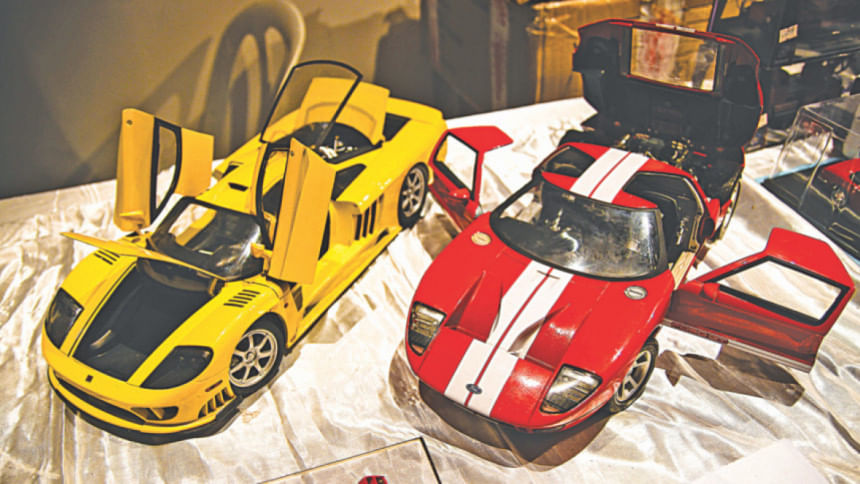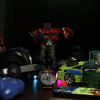The 'kidult' conundrum

Robin Rahman, a 40-year-old corporate banker, is into collecting vintage action figures. He turned his living room into a shrine to the 80s, filled with shelves neatly displaying rows of colourful action figures from a bygone era. "It brings me peace and a sweet slice of nostalgia," he says, holding a Ninja Turtles action figure. Robin is embodying the spirit of a growing demographic that industry insiders have termed "kidults". It is a term combining the words "kid" and "adult," indicating adults who are into hobbies traditionally associated with children. Ranging from their mid-20s to late 50s, kidults often represent millennials (born between 1981-1996) and Gen Xers (1965-1980). Whether it's adults collecting action figures, or buying nostalgic items, the kidult trend blends adult life with a desire to simply relive the joys of their long-gone childhoods.
Kidults aren't a new phenomenon. The concept traces back decades and connects to the rise of media giants like Disney which catered to audiences from different generations. It gained momentum during the pandemic which prompted stay-at-home people to engage in the version of 'fun' that is defined for kids. Today, it has expanded into a robust consumer trend, accounting for one-fourth of all toy purchases yearly, or roughly $9 billion. This provides brands the opportunity to tap into collectible games and toy franchises that evoke nostalgia.
There are a myriad of factors contributing to the rise of kidults. The increasing stresses of adult life for instance economic instability and career pressure have left us finding comfort in simple things. According to El País, reliving childhood pastimes have become a therapeutic solution for adults under stress.
Toy brands have jumped on the bandwagon of this trend, targeting products tailored toward this specific demographic. From Barbie's blockbuster success to LEGO sets designed for adults, the kidult market is thriving. It sees its potential especially among millennials and Gen Z, who are now in their peak earning years.
The kidult trend comes with great economic implications. Toy companies have shifted their strategies targeting the kidults. They are designing products that attract adults with disposable incomes. For example, Mattel, an American multinational toy manufacturing and entertainment company, has launched a series of collectibles of popular franchises like Star Wars and Marvel.
The companies are not just selling toys—they're selling nostalgia. Who thought that selling kids' items tied to childhood memories would become a business model. LEGO, for example, has seen skyrocketing sales to adults. They revealed that a noticeable segment of their consumers are adults.
Bangladesh like any other emerging economy of the world is gradually experiencing the kidult trend. Facebook pages and groups for vintage collectibles are gaining momentum. Kidults, on social media, are flaunting pictures of their vintage collectibles, ranging from old Casio watches to rare 80s action figures. These items trigger a sense of nostalgia for a time when life was simpler and carefree.
The kidult market is in its early stage in Bangladesh. A 2020 report from a local news daily underscored an increase in sales of collectibles. It appears that this market could extend beyond just collectibles. If we observe the wave of localised versions of global trends in Bangladesh, for example, themed cafés, pop-culture events like Halloween, or stores selling retro product lines, inspired by Bangladesh's own cultural history.
The growth potential of this market is not just in selling toys. There's a huge potential for experiential marketing as well. Imagine exhibitions, vintage fairs and events that let people in Bangladesh relive the pop culture of their youth. Globally, we are already seeing the rise in vintage fashion that embodies the vibe of the 70s and 80s.
The kidult trend brings into the table for consideration is not just an economic factor but a cultural one as well. If Bangladeshis engage with international media and consumer products, it will open a cultural path for a new generation that merges local tradition with modern nostalgia. Such mix of old and new indeed provides a fascinating lens to view the future of consumer culture.
Moreover, the kidult conundrum forces us to pinpoint the real boundary line between adulthood and childhood. As adults tend to embrace their inner child, the line between these two stages of life keeps on merging. While some may find it immature, for people like Robin, it's simply about finding peace in a society that too often puts a lot of pressure pushing people to the limit way.
In today's 9-5 world, embracing a bit of childishness might help us lighten ourselves. As the old saying goes, "All work and no play makes Jack a dull boy." This statement no longer applies just for kids. It gives a strong reminder for adults to find solace amidst deadlines and responsibilities.
Sabbir Rahman Khan is a knowledge management, communications, and advocacy professional.
Views expressed in this article are the author's own.
Follow The Daily Star Opinion on Facebook for the latest opinions, commentaries and analyses by experts and professionals. To contribute your article or letter to The Daily Star Opinion, see our guidelines for submission.


 For all latest news, follow The Daily Star's Google News channel.
For all latest news, follow The Daily Star's Google News channel. 





Comments